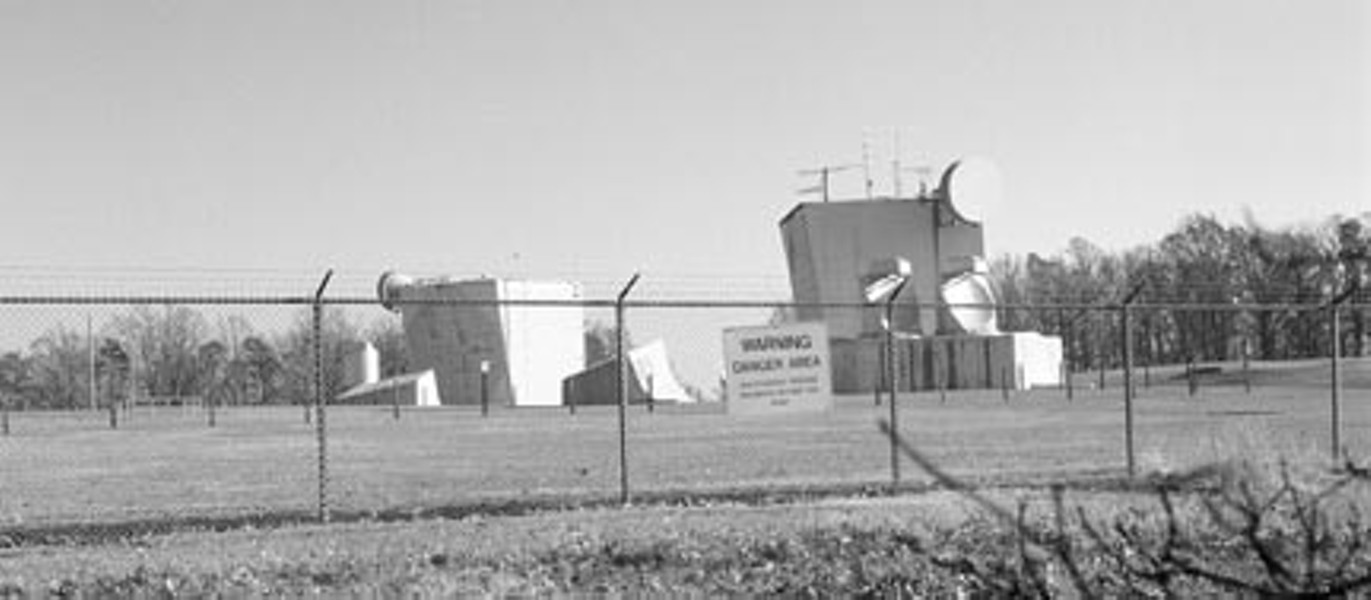I was thinking the other week, when this app started making the rounds, about how our little town would probably not be on anyone's nuclear bomb target list. Turns out that's probably still true. Instead of the town being a target, a spot two miles up the road from our house is likely to be one.

Ask Pittsboro Mayor Chuck Devinney what he did when he worked for AT&T, and he offers evasions straight out of an X-Files script. "I wiped it all out of my head," he says. "When I went out the door, I never looked back."
Coming from a public utility employee turned small-town public official, that might sound pretty melodramatic. Unless, that is, the door walked out of was the secured gateway to Chatham County's underground enigma, the Big Hole. That's where Devinney and dozens of other AT&T employees holed up for much of the Cold War, soldiers in a hidden battle to safeguard a U.S. command and control system in the event of nuclear war.
The system, called the Automatic Voice Network (AUTOVON), was put in service in 1964 by the Defense Communications Agency; the Chatham facility came on-line in 1966. About 60 AUTOVON relay and switching centers were built across the country. Of those, 20 sites, including Big Hole, were underground, hardened facilities, engineered to withstand anything but a direct hit by an enemy missile. AT&T won the classified contract to operate domestic AUTOVON centers, while the U.S. military manned those established in other countries.
